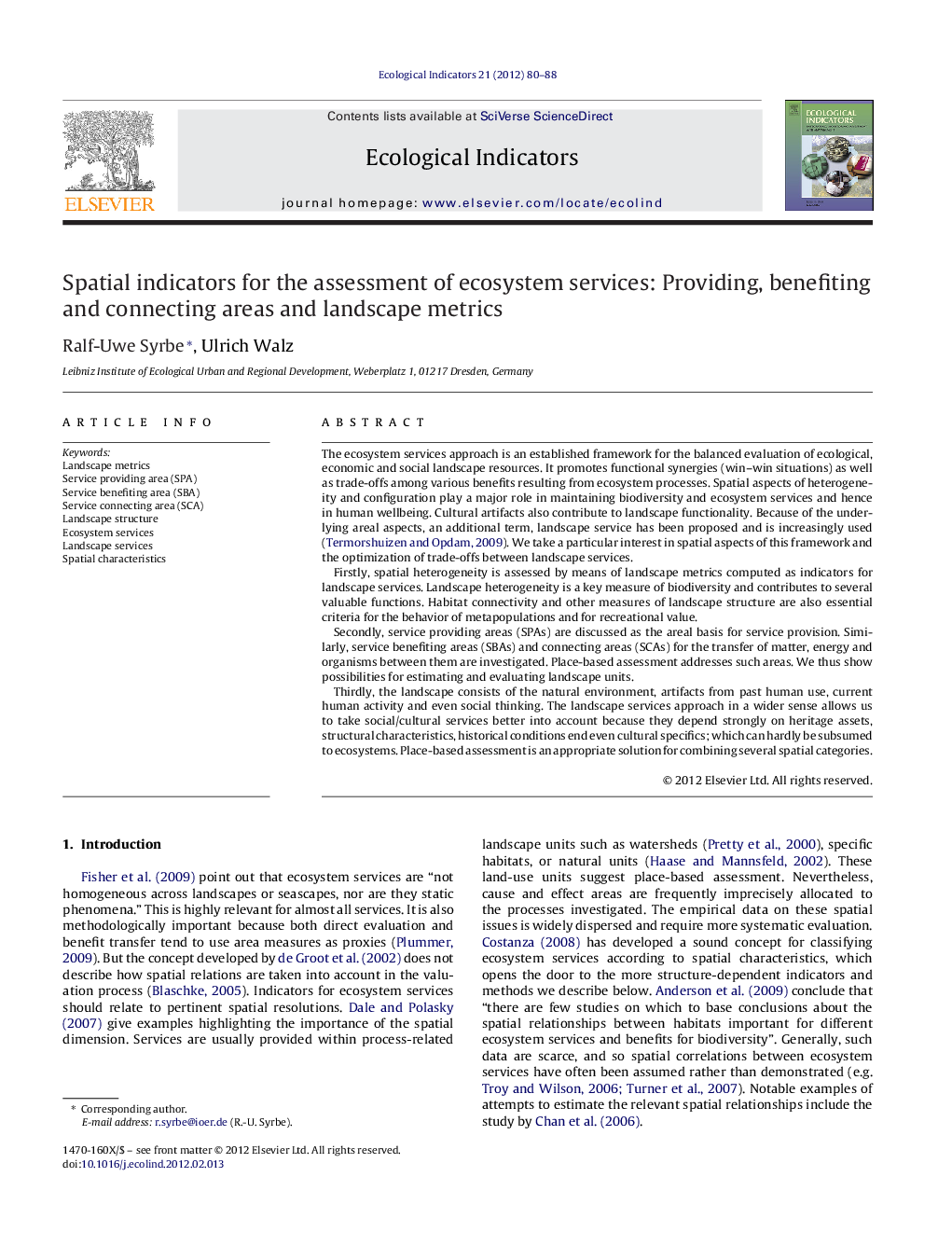| Article ID | Journal | Published Year | Pages | File Type |
|---|---|---|---|---|
| 4373697 | Ecological Indicators | 2012 | 9 Pages |
The ecosystem services approach is an established framework for the balanced evaluation of ecological, economic and social landscape resources. It promotes functional synergies (win–win situations) as well as trade-offs among various benefits resulting from ecosystem processes. Spatial aspects of heterogeneity and configuration play a major role in maintaining biodiversity and ecosystem services and hence in human wellbeing. Cultural artifacts also contribute to landscape functionality. Because of the underlying areal aspects, an additional term, landscape service has been proposed and is increasingly used (Termorshuizen and Opdam, 2009). We take a particular interest in spatial aspects of this framework and the optimization of trade-offs between landscape services.Firstly, spatial heterogeneity is assessed by means of landscape metrics computed as indicators for landscape services. Landscape heterogeneity is a key measure of biodiversity and contributes to several valuable functions. Habitat connectivity and other measures of landscape structure are also essential criteria for the behavior of metapopulations and for recreational value.Secondly, service providing areas (SPAs) are discussed as the areal basis for service provision. Similarly, service benefiting areas (SBAs) and connecting areas (SCAs) for the transfer of matter, energy and organisms between them are investigated. Place-based assessment addresses such areas. We thus show possibilities for estimating and evaluating landscape units.Thirdly, the landscape consists of the natural environment, artifacts from past human use, current human activity and even social thinking. The landscape services approach in a wider sense allows us to take social/cultural services better into account because they depend strongly on heritage assets, structural characteristics, historical conditions end even cultural specifics; which can hardly be subsumed to ecosystems. Place-based assessment is an appropriate solution for combining several spatial categories.
